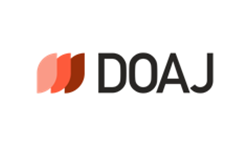НОВІ ОРІЄНТИРИ ЗАСТОСУВАННЯ МІЖНАРОДНИХ СТАНДАРТІВ ОБЛІКУ ТА ЗВІТНОСТІ ПІСЛЯ ВИХОДУ ВЕЛИКОБРИТАНІЇ З ЄС
Ключові слова:
Брексіт, стандарти бухгалтерського обліку, оподаткування, Директива, Великобританія, Європейський Союз.Анотація
Вплив виходу Великобританії з ЄС досліджується не тільки як актуальна зміна на геополітичному полі, а й як період, у якому через економічні фактори виникає багато проблем ведення бухгалтерського обліку та оподаткування між сучасною Ірландією, Лондоном та ЄС. Мета дослідження – розглянути, ідентифікувати та спрогнозувати нові орієнтири застосування Міжнародних стандартів фінансової звітності (МСФЗ) після виходу Великобританії із ЄС. Визначено три можливі орієнтири розвитку британської системи бухгалтерського обліку та аудиту після Brexit. Новизна дослідження полягає у проведенні аналітичного оцінювання регулювальних документів у сфері бухгалтерського обліку Великобританії після виходу її з ЄС, створення нової ради з фінансового обліку в Лондоні (AFRAG) та порівняння її з функціями попередньої ради. Дослідження допомогло з’ясувати орієнтири подальшого застосування стандартів бухгалтерського обліку у Великобританії та окреслити перспективи розробки й застосування МСФЗ, як у короткостроковій, так і довгостроковій перспективах. Для України на етапі вступу до ЄС у 2024–2025 рр. розглянуті питання також актуальні, адже у період війни Великобританія, крім ЄС, стала вагомим економічним партнером для України у період війни.
Класифікація за JEL: M48, K22, G15, G17.
Посилання
Кузнечікова, О. (2018). Brexit – наслідки для міжнародних бізнес-структур. Вісник МСФЗ, 7. http://msfz.ligazakon.ua/ua/magazine_article/FZ001584 [Ukrainian].
Alfano, M., Dustmann, C., & Frattini, T. (2016). Immigration and the UK: Reflections after Brexit. Centro Studi Luca d'Agliano Development Studies Working Paper, No. 402. http://dx.doi.org/10.2139/ssrn.2900373
Armour, J. (2017). Brexit and financial services. Oxford Review of Economic Policy (Brexit Special Issue). https://ssrn.com/abstract=2892679
Arnorsson, A., & Zoega, G. (2016). On the causes of Brexit. CESifo Working Paper Series, No. 6056. https://ssrn.com/abstract=2851396
Association of International Certified Professional Accountants. (2019). AICPA business and industry economic outlook survey. Detailed survey results: 1Q 2019. https://us.aicpa.org/content/dam/aicpa/interestareas/businessindustryandgovernment/newsandpublications/downloadabledocuments/1q2019-eos-slides.pdf
Bartels, L. (2016). The UK's status in the WTO after Brexit. http://dx.doi.org/10.2139/ssrn.2841747
Bodellini, M. (2017). The impact of Brexit on the UK alternative investment fund industry. Law and Economics Yearly Review. https://ssrn.com/abstract=3689173
Boulhaga, M., Elbardan, H., & Elmassri, M. (2022). The effect of internal control and corporate social responsibility on conditional accounting conservatism: Evidence from France. The Journal of Corporate Accounting & Finance, 34(2), 228-241. https://doi.org/10.1002/jcaf.22605
Bouvier, S. (2018, May). Accounting matters: EU moves to review standards. IPE Magazine. https://www.ipe.com/analysis/analysis/accounting-matters-eumoves-to-review-standards/10024380.article
Böckli, P., Davies, P. L., Ferran, E., Ferrarini, G., Garrido G., J. M., Hopt, K. J., Opalski, A., Pietrancosta, A., Roth, M., Skog, R.R., Soltysinski, S., Winter, J. W., Winner, M., & Wymeersch, E. O. (2017). The consequences of Brexit for companies and company law. University of Cambridge Faculty of Law Research Paper, No. 22/2017. http://dx.doi.org/10.2139/ssrn.2926489
Colantone, I., & Stanig, P. (2016). Global competition and Brexit. BAFFI CAREFIN Centre Research Paper, No. 2016-44.http://dx.doi.org/10.2139/ssrn.2870313
Craig, P. P. (2016). Brexit: A drama in six acts. Oxford Legal Studies Research Paper, No. 45/2016. https://ssrn.com/abstract=2807975
Cumming, D. J., & Zahra, S. A. (2016). International business and entrepreneurship implications of Brexit. British Journal of Management, Forthcoming. from https://ssrn.com/abstract=2825271
Department of Business, Energy & Industrial Strategy. (2020, February). Information of the transition period for auditors and firms. https://www.frc.org.uk/getattachment/0d9fcf2c-887d-438c-85e6-7d05ade895ab/AUDIT-IPCOMMUNICATION-2020-Final.pdf
Directive 2004/109/EC of the European Parliament and of the Council of 15 December 2004 on the harmonisation of transparency requirements in relation to information about issuers whose securities are admitted to trading on a regulated market and amending Directive 2001/34/EC. https://eur-lex.europa.eu/legal-content/EN/TXT/?uri=celex%3A32004L0109
Directive 2006/43 / EU of the European Parliament and the Council on statutory audits of annual accounts and consolidated accounts, amending Council
Directive 78/660 / EU and 83/349 / EU and repealing Council Directive 84/253 / EU. https://eur-lex.europa.eu/legal-content/EN/TXT/?uri=celex%3A32006L0043
Financial Reporting Council. (n.d.). Endorsement of IAS. Retrieved December 1, 2020, from https://web.archive.org/web/20210614212640/ https://www.frc.org.uk/endorsement-of-ias
Hantrais, L. (2019). What Brexit means for EU and UK social policy. Bristol University Press; Policy Press. https://doi.org/10.2307/j.ctvbqs48t
Heald, D., & Wright, I. (2019). The UK’s exit charge from the EU: Insights from modes of accounting. Abacus, 55(3), 557-581. http://dx.doi.org/10.1111/abac.12166
Howley, P., & Waqas, M. (2020). National identity and Brexit. Leeds University Business School Working Paper, Forthcoming. http://dx.doi.org/10.2139/ssrn.3464210
IAS Plus. (2019, Oct 01). UK endorsement of IFRSs post EU-exit. https://www.iasplus.com/en/news/2019/10/ifass-brexitInglehart, R. F., & Norris, P. (2016). Trump, Brexit, and the rise of populism:
Economic have-nots and cultural backlash. HKS Working Paper, No. RWP16-026. http://dx.doi.org/10.2139/ssrn.2818659
Institute of Chartered Accountants in England and Wales. (n.d.-a). Brexit: Implications for financial reporting. Retrieved March 3, 2020, from https://www.icaew.com/technical/corporate-reporting/brexit-implications-forfinancial-reporting
Institute of Chartered Accountants in England and Wales. (n.d.-b). Will ARGA restore trust in audit? Retrieved September 6, 2019, from https://www.icaew.com/technical/audit-and-assurance/inquiry-intoaudit/commentary-on-audit-reviews/will-arga-restore-trust-in-audit
Kean, F. (2019, Aug 21). Does ARGA (the new UK accounting regulator) spell trouble for directors?. https://www.linkedin.com/pulse/does-arga-new-ukaccounting-regulator-spell-trouble-directors-kean/
Lehmann, M., & Zetzsche, D. A. (2016). Brexit and the consequences for commercial and financial relations between the EU and the UK. 27 European Business Law Review, 999–1002. http://dx.doi.org/10.2139/ssrn.2841333
McGrath, E., & Gourley, L. (2018). The impact of BREXIT on the application of IFRS in the UK. Policy Pulse June 2018 compendium, 4.https://assets.ey.com/content/dam/ey-sites/ey-com/en_uk/topics/brexit/compliance-and-regulation/ey-policy-pulse-june-2018-impact-of-brexit.pdf
Meyenburg, I. (2022). «Brexit Means Brexit!»: Investigating the production of social phenomena in political discourses. Symbolic Interaction, 45(4), 570-595. https://doi.org/10.1002/symb.615
Nunez-Ferrer, J., & Rinaldi, D. (2016). The impact of Brexit on the EU budget: A non-catastrophic event. CEPS Policy Brief, No. 347. https://ssrn.com/abstract=2859407
Oestriecher, K., & Beasley, M. (2018). The current environment and implications for audit planning. In K. Oestriecher & M. Beasley (Eds.), Annual update for accountants and auditors (pp. 6-1-6-21). https://doi.org/10.1002/9781119511427.ch6
Regulation EU No 1606/2002 of the European Parliament and of the Council of 19 July 2002 on the application of international accounting standards. https://eur-lex.europa.eu/legal-content/en/ALL/?uri=CELEX%3A32002R1606
Ringe, W. (2018). The irrelevance of Brexit for the European financial market. European Business Organization Law Review, 19, 1–34. https://doi.org/10.1007/s40804-018-0106-6
Schaefer, H.-B., & Kämmerer, J. (2020). At Brexit crossroads: Autonomy and growth as alternatives?. Brexit: Legal and Economic Aspects of a Political Divorce, Forthcoming. https://papers.ssrn.com/sol3/papers.cfm?abstract_id=3744705
Seidler, L. J. (1967). International accounting – the ultimate theory course. Accounting Review, 42(4), 775–81. https://www.jstor.org/stable/244174
Strobel, C. D. (2017). Some changes in international tax. The Journal of Corporate Accounting & Finance, 28(3), 90-92. https://doi.org/10.1002/jcaf.22254
Trueblood, L. (2020). Brexit and two roles for referendums in the United Kingdom. In R. Albert & R. Stacey (Eds.), The limits and legitimacy of referendums. https://dx.doi.org/10.2139/ssrn.3701818
Wu, C. (2020). Brexit in the eyes of East: How will it reshape EU/UK trade relations with East Asia? European Foreign Affairs Review, 25(3), 357-378.https://doi.org/10.54648/eerr2020028
Отримано: 20 березня 2023 р.
Рецензовано: 28 березня 2023 р.
Рекомендовано до друку: 22 квітня 2023 р.
##submission.downloads##
Опубліковано
Як цитувати
Номер
Розділ
Ліцензія
Автори, які публікуються у цьому журналі, погоджуються з наступними умовами:
- Автори залишають за собою право на авторство своєї роботи та передають журналу право першої публікації цієї роботи на умовах ліцензії Creative Commons Attribution License, котра дозволяє іншим особам вільно розповсюджувати опубліковану роботу з обов'язковим посиланням на авторів оригінальної роботи та першу публікацію роботи у цьому журналі.
- Автори мають право укладати самостійні додаткові угоди щодо неексклюзивного розповсюдження роботи у тому вигляді, в якому вона була опублікована цим журналом (наприклад, розміщувати роботу в електронному сховищі установи або публікувати у складі монографії), за умови збереження посилання на першу публікацію роботи у цьому журналі.
- Політика журналу дозволяє і заохочує розміщення авторами в мережі Інтернет (наприклад, у сховищах установ або на особистих веб-сайтах) рукопису роботи, як до подання цього рукопису до редакції, так і під час його редакційного опрацювання, оскільки це сприяє виникненню продуктивної наукової дискусії та позитивно позначається на оперативності та динаміці цитування опублікованої роботи (див. The Effect of Open Access).








